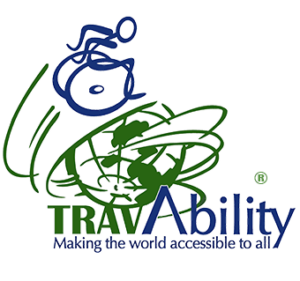The Federal Disability Discrimination Act 1992 (DDA) aims to ensure that people with disabilities are not treated less favorably than people who do not have a disability.
The DDA covers areas such as employment, access to goods, services and facilities,
education, access to premises and transport. The DDA defines disability very broadly and
includes, for example:
- people who are blind or vision impaired;
- people who are Deaf or hearing impaired;
- people with intellectual and learning disabilities;
- people with mobility and manual dexterity difficulties;
- people with psychiatric disabilities;
- people who have a brain injury;
- people who have epilepsy; and
- people who have a disease-causing organism such as the HIV virus.
- All States and Territories have similar laws that prohibit discrimination.
Service providers, such as events organisers and sponsors have a legal responsibility under
State/Territory and Federal laws to avoid discriminating and, when barriers exist, to remove
them.
Some examples of things that may lead to a discrimination complaint
- Door stewards at a venue or event refuse entry to a ticket holder because he has cerebral palsy and has difficulty controlling and co-ordinating his movements.
- A conference centre or outdoor event has a policy of only providing a self-service buffet at lunchtime for patrons. Some people with mobility impairments or vision impairments may find it difficult or impossible to carry or hold food from a buffet selection and to eat without placing their plate on a table.
- An awards ceremony takes place on a platform that can only be accessed by two steps so a recipient who uses a wheelchair cannot participate in the ceremony in the same way others can.
- A festival doesn’t provide an accessible portable toilet
- Information or maps are only available as printed material making it difficult for a blind to participate.
What happens if someone believes they have been discriminated against?
If a person with a disability tells you they feel they have been discriminated against when they have tried to access your venue, tour or event, you should consider what you can do to put things right. The guidance in Sections 4 to 12 can be used to help find solutions.
It is important that you take any complaint seriously and look for ways to resolve the issue through discussion and negotiation.
If a person with a disability decides to make a complaint to the Human Rights and Equal Opportunity Commission (HREOC), or a state/territory anti-discrimination body, you will be informed of the complaint and asked to provide your side of the story.
The HREOC will try to conciliate an agreement between you and the person who has complained, but if this is not successful the complainant will be advised of their right to take their complaint to the Federal Court or Federal Magistrates Court. (The process is similar under state and territory anti-discrimination laws.)
If the Federal Court or Federal Magistrates Court finds that you have discriminated and there is
no unjustifiable hardship defence (see below) it can order you to remove the barrier or stop the discrimination and to make changes to avoid discriminating again in the future. The Court can also order you to pay compensation to the complainant.
Barriers don’t always have to be removed to avoid discrimination
In some circumstances; the law says you might not have to remove barriers or make changes to ensure equal access. This is referred to as a defence of ‘unjustifiable hardship.’ Factors that may mean you would not have to provide full access include:
- the cost of making a particular change or providing a particular service would impose an ‘unjustifiable hardship’ on you as the service provider; or
- a health and safety regulation is applicable at the venue that prevents a particular change to the premises from being made; or
- the adjustment will change the nature of the service or make it impossible for you to provide that service for other people.
It’s not possible to say for certain what would be an unjustifiable hardship as every complaint of discrimination has to be assessed on its own merit. The resources available to some organisations would make it difficult for them to successfully argue unjustifiable hardship in most situations, whereas other organisations may have so few resources available to them that any significant additional costs could seriously threaten the viability of the operation.




Leave a Reply
Want to join the discussion?Feel free to contribute!